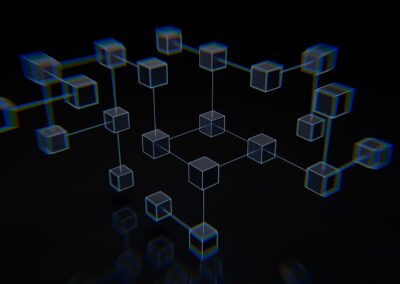Strategies to Quickly Restore Operations Post-Cyber Attack
Understanding the Threat Landscape in Manufacturing
In today’s interconnected world, manufacturing firms face a myriad of cyber threats, particularly in their supply chains. Cyber resilience in manufacturing supply chains has become crucial to maintaining operational continuity and ensuring business success. The ability to quickly restore operations following a cyber attack hinges on several key factors, including advanced technological integration, robust incident response plans, and proactive leadership.
Saudi Arabia and the UAE, with their rapidly growing industrial sectors, are prime examples of regions that must prioritize cyber resilience. Cities like Riyadh and Dubai are home to numerous manufacturing firms that contribute significantly to their economies. Ensuring these firms can withstand and recover from cyber attacks is essential for sustaining economic growth and stability.
Cyber attacks on supply chains can disrupt production, lead to financial losses, and damage a company’s reputation. Therefore, understanding the threat landscape is the first step towards building resilience. This involves recognizing potential vulnerabilities, such as interconnected systems and third-party dependencies, and implementing measures to mitigate these risks. For instance, leveraging AI and blockchain technologies can enhance security by providing real-time monitoring and secure transaction records.
Implementing Robust Incident Response Plans
A well-structured incident response plan is critical for minimizing downtime and mitigating the impact of cyber attacks. These plans should outline specific procedures for identifying, containing, and eradicating threats, as well as recovering and restoring affected systems. The effectiveness of an incident response plan relies heavily on regular updates and drills to ensure readiness.
In the context of manufacturing firms in Saudi Arabia and the UAE, incident response plans must consider the unique aspects of industrial operations. For example, integrating AI-driven analytics can help detect anomalies in real time, allowing for quicker identification of cyber threats. Additionally, blockchain technology can provide a tamper-proof ledger of supply chain activities, aiding in the rapid identification of compromised components.
Leadership plays a crucial role in the successful implementation of incident response plans. Executive coaching services can equip leaders with the skills needed to navigate crises and make informed decisions under pressure. By fostering a culture of proactive risk management and continuous improvement, leaders can ensure that their organizations are prepared to respond effectively to cyber attacks.
Leveraging Advanced Technologies for Cyber Resilience
The integration of advanced technologies such as AI and blockchain is a cornerstone of building cyber resilience in manufacturing supply chains. AI can enhance threat detection and response capabilities by analyzing vast amounts of data to identify patterns indicative of cyber threats. Machine learning algorithms can learn from previous incidents to improve the accuracy of threat detection over time.
Blockchain technology, on the other hand, offers a decentralized and secure way to manage supply chain transactions. Each transaction is recorded in an immutable ledger, making it difficult for cyber attackers to alter records without detection. This transparency and security can significantly reduce the risk of supply chain disruptions caused by cyber attacks.
In cities like Riyadh and Dubai, where technological innovation is a priority, manufacturing firms are increasingly adopting these advanced technologies to bolster their cyber resilience. By investing in AI and blockchain solutions, these firms can enhance their ability to detect, respond to, and recover from cyber threats, thereby ensuring the continuity of their operations.
Building a Culture of Cyber Resilience
Training and Awareness Programs
Building a culture of cyber resilience requires more than just technological solutions; it also involves fostering a workforce that is aware of cyber threats and knows how to respond to them. Customized training programs tailored to specific job roles are essential for improving security awareness and ensuring that all employees understand their role in maintaining cyber resilience.
In Saudi Arabia and the UAE, businesses are increasingly recognizing the importance of employee training and awareness. For instance, regular workshops and simulations can help employees practice their response to cyber incidents, ensuring they are prepared to act swiftly and effectively. By incorporating real-world scenarios into training programs, organizations can provide employees with practical experience in handling cyber threats.
Leadership development programs, including executive coaching services, can further enhance the effectiveness of training initiatives. By equipping leaders with the knowledge and skills to promote a culture of security, organizations can ensure that cyber resilience becomes an integral part of their business operations.
Collaboration and Information Sharing
Collaboration and information sharing are critical components of a robust cyber resilience strategy. Manufacturing firms can benefit from sharing threat intelligence and best practices with industry peers, government agencies, and cybersecurity experts. This collaborative approach helps organizations stay informed about emerging threats and develop effective countermeasures.
In the UAE and Saudi Arabia, public-private partnerships are playing a pivotal role in enhancing cyber resilience. Initiatives such as cybersecurity forums and industry working groups provide platforms for stakeholders to exchange information and collaborate on solutions to common challenges. By participating in these initiatives, manufacturing firms can leverage collective knowledge and resources to strengthen their cyber defenses.
Furthermore, collaboration with technology providers and cybersecurity vendors can provide manufacturing firms with access to cutting-edge solutions and expertise. By working together, organizations can develop comprehensive strategies that address the full spectrum of cyber threats, from initial detection to post-incident recovery.
Continuous Improvement and Adaptation
The dynamic nature of cyber threats requires organizations to adopt a mindset of continuous improvement and adaptation. Regular assessments and audits of cybersecurity practices can help identify gaps and areas for enhancement. By continuously refining their strategies and staying abreast of the latest developments in cybersecurity, manufacturing firms can maintain a resilient posture against evolving threats.
In Dubai and Riyadh, businesses are leveraging advanced analytics and machine learning to continuously monitor and improve their cybersecurity measures. These technologies enable organizations to proactively identify vulnerabilities and implement corrective actions before incidents occur. By adopting a proactive approach to cybersecurity, manufacturing firms can minimize the risk of disruptions and ensure the continuity of their operations.
Moreover, fostering a culture of innovation and adaptability within the organization can drive ongoing improvements in cyber resilience. Encouraging employees to contribute ideas and solutions, and recognizing their efforts in enhancing security, can help build a motivated and engaged workforce committed to maintaining a secure operational environment.
Conclusion: The Path to Cyber Resilience
In conclusion, achieving cyber resilience in manufacturing supply chains requires a multifaceted approach that combines advanced technologies, robust incident response plans, and a culture of continuous improvement. By implementing customized training programs, leveraging AI and blockchain solutions, and fostering collaboration and information sharing, organizations in Saudi Arabia, the UAE, Riyadh, and Dubai can enhance their ability to quickly restore operations following a cyber attack.
As the cyber threat landscape continues to evolve, manufacturing firms must remain vigilant and adaptable. By prioritizing cyber resilience and investing in the necessary resources and training, businesses can ensure their long-term success and stability in an increasingly digital world. The commitment to security awareness and proactive risk management will be key to building a resilient and prosperous future for the manufacturing industry.
—
#CyberResilience #ManufacturingSupplyChains #CyberAttackRecovery #SaudiArabia #UAE #Riyadh #Dubai #AIinManufacturing #BlockchainInSupplyChains #BusinessSuccess #LeadershipSkills #ProjectManagement























